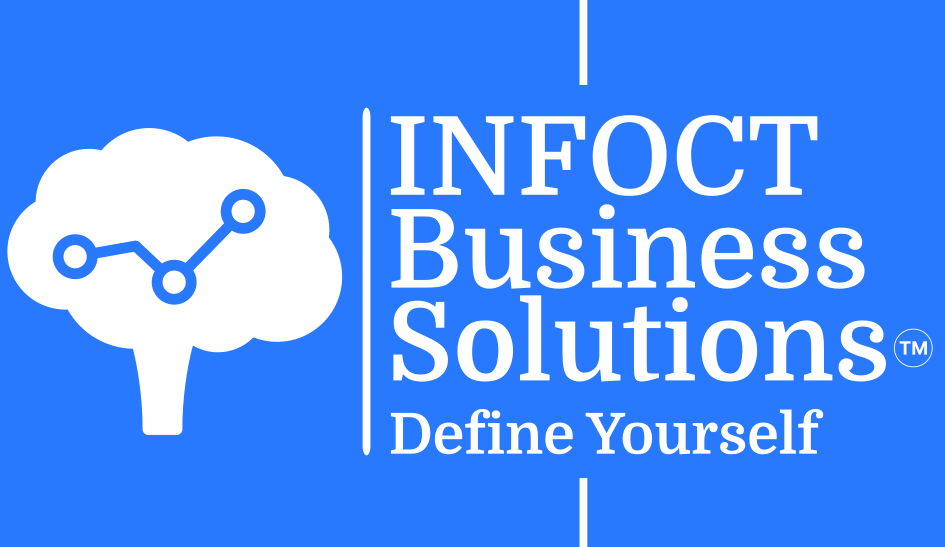Syllabus of Medical Coding Courses
The syllabus for general medical coding courses include:
- Introduction to Medical Terminology
- Anatomy Structure
- Medical Terminology
- Medical Ethics
- ICD-10-CM Coding Manual
- Infections using ICD-10-CM
- Digestive System using ICD-10-CM
- Coding for Pregnancy using ICD-10-CM
- CPT Coding for Reproductive Systems
- Coding for Mental Disorders using ICR-10-CM
Course Over view
| Course | Medical coding |
| Duration | 3 months to 6 months |
| Eligibility | 10+2 and an associate degree/certificate program/bachelors degree |
| Exams Required | A Certification Exam like CPC |
| Salary | The average annual salary ranges between INR 4-6 Lakhs (India) |
| Other Names | Medical coding specialist, Diagnostic coder, Medical coding analyst, Clinical coding officer, Medical coding auditor |
What is Medical Coding?
After a doctor treats a patient, a report needs to be created for both the patient and the insurance company to understand the performed procedures and facilitate billing. Medical coding bridges this gap by translating the medical jargon into standardized, alphanumeric codes. These codes act as a universal language, enabling:
- Efficient data management: Accumulated patient data becomes readily accessible for analysis and research.
- Streamlined insurance claims: Standardized codes facilitate claim processing and ensure accurate reimbursement.
- Disease tracking and analysis: Statistical data provides valuable insights into disease prevalence and treatment effectiveness.
Medical coders, the unseen heroes of the healthcare industry, work meticulously to ensure accurate and efficient coding. They rely on three primary code sets:
- CPT (Current Procedural Terminology): Codes for procedures and services performed by healthcare professionals.
- ICD (International Classification of Diseases): Codes for diagnoses, diseases, and other health conditions.
- HCPCS (Healthcare Procedural Coding System): Codes for specific medical equipment, supplies, and services not included in CPT.
By mastering these code sets and adhering to established guidelines, medical coders play a vital role in:
- Enhanced patient care: Accurate coding ensures proper billing, facilitating access to necessary treatment and services.
- Improved healthcare delivery: Efficient data management empowers informed decision-making and resource allocation.
- Financial stability: Accurate claims processing ensures optimal insurance reimbursement, contributing to the financial well-being of healthcare institutions.
Roles and Responsibilities of a Medical Coder
Key Responsibilities of a Medical Coder:
1. Data Management and Documentation:
- Update patient records with standardized information, adhering to data management and billing requirements.
- Ensure accurate and complete documentation, enhancing patient care and facilitating efficient healthcare delivery.
2. Code Assignment and Analysis:
- Analyze medical charts, including physician notes, diagnostic tests, and treatment plans.
- Assign appropriate codes for diagnoses, procedures, and other services provided by healthcare professionals.
- Utilize established coding systems such as ICD-10-CM and CPT to ensure accurate and consistent coding practices.
3. Procedural Coding:
- Assign specific codes to each diagnosis and procedure documented in medical records.
- Maintain a detailed record of all coded information for future reference and billing purposes.
- Stay updated on changes and updates to coding guidelines and procedures.
4. Communication and Collaboration:
- Effectively communicate coding challenges and clarifications with physicians, nurses, and other healthcare providers.
- Collaborate with billing specialists to ensure accurate claim submission and reimbursement.
- Participate in team meetings and discussions to contribute to efficient workflow and patient care.
5. Quality Assurance and Compliance:
- Perform regular audits of coded data to identify and correct any errors or inconsistencies.
- Adhere to all relevant government regulations and healthcare industry standards.
- Maintain a high level of accuracy and integrity in all coding practices.
Additional Responsibilities:
- Stay informed about changes in medical terminology and coding practices.
- Participate in ongoing professional development and training opportunities.
- Apply critical thinking and problem-solving skills to address coding complexities.
- Contribute to the overall efficiency and effectiveness of the healthcare organization.
How to become a Medical Coder?
Embracing a Booming Career Path: Medical Coding
With the medical industry increasingly embracing digital infrastructure, the demand for skilled medical coders is set to soar. If you’re drawn to this promising field, here’s a roadmap to navigate your journey:
1. Mastering the Fundamentals:
- Training: Opt for comprehensive medical coding training programs offered by renowned organizations like AAPC, AHIMA, or CAHIIM. These online or university-based programs typically last less than a year and equip you with essential knowledge in disease processes, treatment procedures, medical terminology, body systems, and introductory ICD-10 coding.
- Educational Options: Consider pursuing an associate degree (2 years) or a bachelor’s degree (3 years) in healthcare administration or health information management for a more in-depth understanding.
2. Achieving Certification:
- Validation of Skills: Earn a recognized certification to demonstrate your expertise and enhance your job prospects. Certified medical coders command significantly higher salaries than non-certified professionals.
- Specialization: Pursue certification in your desired specialization, such as the Certified Professional Coder (CPC) offered by AAPC. This exam validates your ability to code diagnoses and procedures accurately according to established guidelines.
- Career Advancement: AAPC offers additional certifications in various medical specialties, allowing you to refine your skills and expand your career options.
3. Building Your Experience:
- Launching Your Career: Utilize your training and certifications to secure an entry-level medical coding position. Many medical facilities outsource their coding needs, offering work-from-home opportunities.
- Continuous Learning: Continuously enhance your skills by attending additional courses in specific areas, staying updated with industry trends, and participating in professional development programs.
- Career Progression: With experience and advanced certifications, you can progress to leadership roles like coding supervisor or coding manager.
Eligibility Requirement to Pursue Medical Coding
- Completed Schooling
- A bachelor’s degree or an associate degree in healthcare related fields or in life sciences.
- A medical training program
- Being certified as a medical coder by a accredited institution
- Knowledge of the basic medical codes used.
- Analytical ability to read and analyse medical records by using the right codes and producing relevant data.
- Basics of disease processes, treatment procedures, terminology, body systems.
Courses in Medical Coding
The following course options are available in medical coding:
- Advanced ICD-10-CM Code Set Training
- Advanced Neurology and Neurosurgery Coding Course
- Behavioral Health Coding Training
- Dental Billing and Coding with Medical Cross Coding
- EHR and EMR Specialist Course
- Evaluation and Management (E/M) Online Training.
- Home Health Coding Course
- Physical Medicine and Rehabilitation (PMR) Coding
- Skilled Nursing Facility Coding Course
- Anatomy & Physiology
- Medical Terminology
- Pathophysiology and Pharmacology
- CD-10-CM
- ICD-10-PCS
- CPT Coding
- CPT Coding
Medical Coding Course Skills
- ICD-10
- CPT coding
- Microsoft Proficiency
- Customer billing
- Health information technology
- Inpatient coding
- Outpatient coding
- Anatomy
- HCPCS coding
- Clinical documentation
Medical Coding Scope and Salary
The field of medical coding is experiencing remarkable growth, with projected employment increases of 15% by 2024. This surge in demand stems from the healthcare industry’s growing dependence on accurate and efficient data management.
Medical coders have a diverse range of employment opportunities in various healthcare settings:
- Hospitals: Large hospitals often require dedicated teams of coders to handle their high volume of patient data.
- Clinics: Smaller clinics may employ coders on a part-time basis or outsource their coding needs.
- Medical facilities: Specialized facilities like rehabilitation centers and nursing homes also rely on coders for accurate billing and data management.
- Physicians’ offices: Many doctors employ in-house coders or utilize outsourcing services.
- Medical laboratories: Labs require coding services for documenting tests and procedures performed.
- And more!
The career paths for medical coders are equally diverse, with opportunities to specialize in various areas:
- Medical Records Coordinator: Oversees patient records and ensures accurate and complete coding.
- Coder: Applies coding principles to healthcare data.
- Medical Coding Specialist: Focuses on specific areas like surgical procedures or oncology.
- Medical Billing Specialist: Handles the financial aspects of coded data.
- Medical Records Technician: Assists with recordkeeping and coding tasks.
- Health Information Specialist: Analyzes and manages healthcare data.
- Medical Records Clerk: Performs administrative tasks related to medical records and coding.
- Health Information Clerk: Assists health information specialists with data entry and coding.
The financial rewards of a medical coding career are also promising. In India, the average starting salary for coders ranges from Rs 4-6 lakhs per year, with experienced professionals earning up to INR 15 lakhs annually. In the USA, entry-level positions offer an average of $35,000 per year, while experienced coders can make up to $58,000 annually.
These figures demonstrate the significant earning potential in this field. With continued growth and diversification, medical coding presents an attractive and rewarding career option for individuals seeking a stable and fulfilling role in the healthcare industry.
What is Medical Coding?
Medical coding involves assigning specific codes to medical diagnoses, procedures, and services based on documentation provided by healthcare providers.
These codes are essential for billing purposes, as they determine the amount healthcare providers will be reimbursed for their services. Additionally, accurate coding is vital for maintaining patient records and ensuring compliance with healthcare regulations.
The Role of Medical Coders
Medical coders are trained professionals responsible for reviewing patient medical records, assigning appropriate codes, and ensuring that codes comply with healthcare regulations and guidelines.
They play a crucial role in the healthcare revenue cycle by ensuring that healthcare providers are properly reimbursed for their services.
Types of Codes Used There are several coding systems used in medical coding, including: ICD-10-CM (International Classification of Diseases, 10th Edition, Clinical Modification): Used to classify diseases and medical conditions. CPT® (Current Procedural Terminology): Used to describe medical procedures and services. HCPCS Level II (Healthcare Common Procedure Coding System): Used to code for services and supplies not included in the CPT® codes. ICD-10-PCS (International Classification of Diseases, 10th Edition, Procedure Coding System): Used to code for procedures performed in healthcare settings. Why is Medical Coding Important? Accurate medical coding is crucial for several reasons: Ensures proper reimbursement for healthcare providers. Facilitates data collection for research and public health purposes. Helps in identifying healthcare trends and patterns. Ensures compliance with healthcare regulations and guidelines. How to Become a Medical Coder Becoming a medical coder requires specialized training and certification. Many institutions offer training programs in medical coding, and certification exams are available through organizations such as the AAPC (American Academy of Professional Coders) and AHIMA (American Health Information Management Association).
Types of Codes Used There are several coding systems used in medical coding, including:
ICD-10-CM (International Classification of Diseases, 10th Edition, Clinical Modification): Used to classify diseases and medical conditions.
CPT® (Current Procedural Terminology): Used to describe medical procedures and services.
HCPCS Level II (Healthcare Common Procedure Coding System): Used to code for services and supplies not included in the CPT® codes.
ICD-10-PCS (International Classification of Diseases, 10th Edition, Procedure Coding System): Used to code for procedures performed in healthcare settings.
Salary and Career Outlook According to AAPC, certified medical coders earn an average salary of ₹7,00,000per year in India and $60,000 per year in US , significantly higher than uncertified health information technicians. Career advancement opportunities are also available for medical coders who pursue additional certifications and education.


